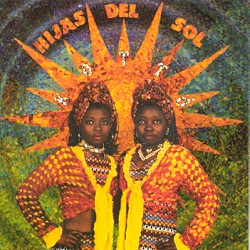
El segundo trabajo de este dúo africano parte de las mismas bases que el primero, pero va más allá: arreglos musicales más modernos, con guitarras eléctricas, batería, acordeón, y nuevos ritmos, como el reggae o el makossa, que hacen más bailable y festivo el disco. Como fruto de sus experiencias en España, cuatro temas están en español, y siguiendo la línea de su disco anterior, tres los hacen a capella. Además de las doce canciones que componen el disco, hay una propina especial, con un tratamiento musical diferente: "El niño africano".
PRENSA:
"Canciones de agradecido y exótico recreo vocal, vestidas para ser presentadas en sociedad con instrumentación acústica, percusiva y fundamentalmente autóctona, y que detrás del ambiente bailable y festivo, que parece desprender el instrumental jugueteo étnico, esconden lamentos de una tierra castigada por las costumbres atávicas, la miseria, la guerra o el olvido”.
(August 2000)
"If you enjoyed the Sibèba CD, you'll definitely love this one. It's a much more sophisticated production, the accompaniments are altogether more adventurous, the range and variety of songs is greater but at the core of it is always that alluring female harmony and the unmistakeable feel of island music (don't ask- it just is...) to melt the hearts of even those most determined to resist "African" music.Wisely, they still include some of their typically beautiful acapella pieces and a couple of traditional songs, but they're cautiously branching out to bring in makossa, bikutsi, reggae, pop, Caribbean and Latin influences to bear on their own original material. Sipolo's subtle violins even bring to mind that gorgeous lost Toumani Diabate Symmetric Orchestra. No real risks are taken (except possibly on the funky jazz band-driven Esa'Ri which successfully seems to erupt on a new land mass somewhere twixt New Orleans and sub-Sahara), but nevertheless the overall impression is of a big leap forward.Consider this a major release by a group who should now be starting to make a big impression on the international world music circuit.”.
(Folks Roots)
"Mit ihrem Debüt-Album "Sibeba" stürmten Piruchi Apo Botupa und Paloma Loribo Apo, deren Bandname " Töchter der Sonne" bedeutet, gleich die europäischen Weltmusik-Charts. Da ihnen das mit "Kotto" wieder gelingen würde, daran bestand kaum ein Zweifel. Ihre von akustischen Gitarren getragenen Arrangements, die eingängigen Melodien ihrer Songs und nicht zuletzt die warme Melancholie des zweistimmigen Gesangs erinnern mehr als einmal an die Nachbarschaft ihrer Heimat Äquatorial-Guinea zu den Kapverdischen Inseln. Das Spektrum der beiden Sängerinnen reicht von funky Reggae-Rhythmen bis zu spanischen Geigen, von Musette-Akkordeon bis zu flirrenden Rumba-Rhythmen. Mein Balkon-Hit dieses Sommers!"
(Blue Rythm)
ENGLISH:
Their second project, Kottó, also strongly focused on the African continent, is a festive and danceable album with more modern musical arregentments, electric guitars, drums, accordion and new rhythms like regae or makossa. As a product of their experiences in Spain, four themes are in Spanish, and following the style of their last record, three of them are without instruments. Apart from the twelve songs that compose the record, there is a special surprise with a different musical treatment: "El niño africano".